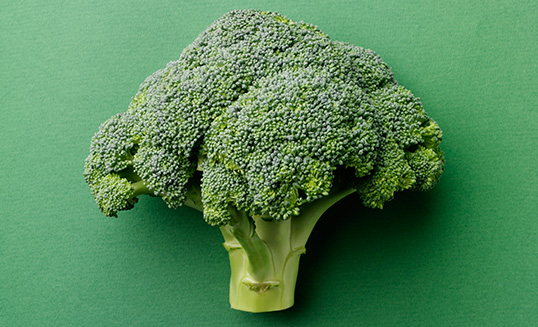Eating well is good for your mental as well as your physical health. The brain requires nutrients just like your heart, lungs or muscles do. But which foods are particularly important to keep our grey matter happy?
Source: http://www.bbcgoodfood.com/

1. Opt for wholegrainsLike everything else in your body, the brain cannot work without energy. The ability to concentrate and focus comes from the adequate, steady supply of energy - in the form of glucose in our blood to the brain. Achieve this by choosing wholegrains with a low-GI, which release glucose slowly into the bloodstream, keeping you mentally alert throughout the day. Opt for 'brown' cereals, wheatbran, granary bread and brown pasta. |
|
2. Eat oily fishEssential fatty acids (EFAs) cannot be made by the body and must be obtained through diet. The most effective omega-3 fats occur naturally in oily fish as EPA and DHA. Good sources include linseed (flaxseed) oil, soya bean oil, pumpkin seeds, walnut oil and soya beans. They are good for healthy brain function, the heart, joints and general wellbe |
|
3. Binge on blueberriesEvidence accumulated at Tufts University in the United States suggests that the consumption of blueberries may be effective in improving or delaying short term memory loss. Widely available, so there's no excuse. |
|
4. Eat more tomatoesThere is good evidence to suggest that lycopene, a powerful antioxidant found in tomatoes, could help protect against the kind of free radical damage to cells which occurs in the development of dementia, particularly Alzheimer's. |
|
5. Add vitality with vitaminsCertain B vitamins - B6, B12 and folic acid - are known to reduce levels of homocysteine in the blood. Elevated levels of homocysteine are associated with increased risk of stroke, cognitive impairment and Alzheimer's disease. A study of a group of elderly patients with mild cognitive impairment found that after two years of intervention with high doses of B6, B12 and folic acid there was significantly less brain shrinkage compared to a subset given placebo treatment. |
|
6. Get a blackcurrant boostVitamin C has long been thought to have the power to increase mental agility. One of the best sources of this vital vitamin areblackcurrants. |
|
7. Pick up pumpkin seedsJust a handful of pumpkin seeds a day is all you need to get your recommended daily amount of zinc, vital for enhancing memory and thinking skills. |
|
8. Bet on broccoliA great source of vitamin K, which is known to enhance cognitive function and improve brainpower. |
|
9. Sprinkle on sageSage has long had a reputation for improving memory and although most studies focus on sage as an essential oil, it could be worth adding fresh sage to your diet too. |
|
10. Go nutsA study published in the American Journal of Epidemiologysuggests that a good intake of vitamin E might help to prevent cognitive decline, particularly in the elderly. Nuts are a great source of vitamin E along with leafy green vegetables, asparagus, olives, seeds, eggs, brown rice and wholegrains. |
|
Other Articles

- The 15 Best Foods For Weight Loss
- 10 Food Lies Your Parents Probably Told You
- 5 Prenatal Power Foods
- 12 Fat Burning Foods
- Exactly What You Should Eat to Lose Weight
- 4 Ways Food Affects You and Your Baby
- 15 Low-Carb Foods You Should be Eating
- Healthy Holiday Tips
- 5 Quick Tips to Kick Start your Weight Loss
- The Fat Truth
- 4 Ways to control your food cravings
- The Truth About Carbs
- 3 benefits of eating a high protein diet
- Have a happy and healthy festive season!
- 23 Studies on Low-Carb and Low-Fat Diets - Time to Retire The Fad
- 10 foods to boost your brainpower
- Coffee and Diabetes
- Food for your organs
- Heart-healthy diet: 8 steps to prevent heart disease
- 7 causes of High Cholesterol




